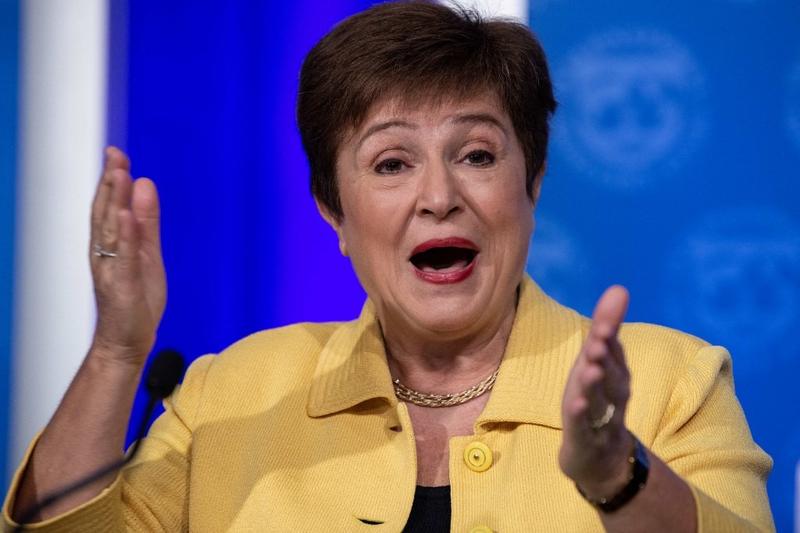 IMF Managing Director Kristalina Georgieva speaks at a press briefing on COVID-19 in Washington, DC, on March 4, 2020. (NICHOLAS KAMM / AFP)
IMF Managing Director Kristalina Georgieva speaks at a press briefing on COVID-19 in Washington, DC, on March 4, 2020. (NICHOLAS KAMM / AFP)
WASHINGTON - International Monetary Fund (IMF) Managing Director Kristalina Georgieva on Wednesday urged governments to take strong policy actions to prevent the dangerous divergence between and within countries when climbing out of the COVID-19 pandemic.
"Most of the world is facing a slow rollout of vaccines even as new virus mutations are spreading -- and the prospects for recovery are diverging dangerously across countries and regions," Georgieva said in a blog, as Group of 20 (G20) finance ministers and central bank governors meet virtually this week.
The IMF chief noted that there is a major risk that as advanced economies and a few emerging markets recover faster, most developing countries will "languish for years to come."
Noting that it is not just divergence across countries, IMF Managing Director Kristalina Georgieva said there is also an accelerated divergence within countries: the young, the low-skilled, women, and informal workers have been "disproportionately affected" by job losses
According to the IMF's latest projection released in January, global gross domestic product (GDP) is on track to grow 5.5 percent this year and 4.2 percent in 2022, but the ascent is going to be long and uncertain.
ALSO READ: Six more cities reach GDP of 1 trillion yuan
"Before the crisis, we forecast that income gaps between advanced economies and 110 emerging and developing countries would narrow over 2020-2022. But we now estimate that only 52 economies will be catching up during that period, while 58 are set to fall behind," Georgieva said.
The IMF chief noted that the divergence is partly due to the uneven access to vaccines, as even in the best-case scenario, most developing economies are expected to reach widespread vaccine coverage only by the end of 2022 or beyond.
"Some are especially exposed to hard-hit sectors such as tourism and oil exports, and most of them are held back by the limited room in their budgets," she continued.
Noting that it is not just divergence across countries, Georgieva said there is also an accelerated divergence within countries: the young, the low-skilled, women, and informal workers have been "disproportionately affected" by job losses.
For G20 economies alone -- excluding India and Saudi Arabia due to data limitations -- total employment losses are projected at more than 25 million this year and close to 20 million in 2022, relative to pre-crisis projections, the IMF chief noted.
To reverse this dangerous divergence between and within countries, Georgieva urged governments to take strong policy actions now, laying out three priorities: step up efforts to end the health crisis; step up the fight against the economic crisis; and step up support to vulnerable countries.
"We know that the pandemic is not over anywhere until it is over everywhere," she said. "That is why we need much stronger international collaboration to accelerate the vaccine rollout in poorer countries."
She said it's critical to provide additional financing to secure doses and pay for logistics, reallocate in time excess vaccines from surplus to deficit countries, and significantly scale up vaccine production capacity for 2022 and beyond.
Vulnerable countries will need substantial support as part of a comprehensive effort, the IMF chief said, noting that international efforts are critical to further scaling up concessional financing and leveraging private finance.
Another option under consideration is a new Special Drawing Rights (SDR) allocation to help address the global long-term need for reserves, which could add a substantial, direct liquidity boost to countries, without adding to debt burdens, Georgieva said.
READ MORE: COVAX says to provide 1.8b vaccines to poor countries
"An SDR allocation served the world well in tackling the global financial crisis in 2009 -- it could serve us well again now," she added.


